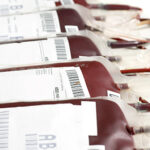
A mental health expert, Dr Kehinde Oderinde says the heatwaves being experienced across the country, which is a result of climate change can worsen mental illnesses and trigger panic attacks.
The Consultant Drug Addiction Psychiatrist at the University of Benin Teaching Hospital, Benin City, Edo State, said such extreme heat can lead to physical discomfort, dehydration, and sleep disturbances, and can exacerbate symptoms of certain mental health conditions.
Speaking with PUNCH Healthwise, the psychiatrist explained that heat waves can increase stress levels, trigger anxiety or panic attacks, and impact mood regulation in vulnerable populations.
The Nigerian Meteorological Agency advised people to drink more water to stay hydrated, avoid the consumption of alcoholic beverages and caffeinated beverages, reduce intake of food rich in proteins because they increase metabolic activities, and that fresh foods and fruits are better alternatives.
NIMET also said people should stay indoors between 12 noon and 4:30 pm, take a cold bath before going to bed at night, and monitor their blood pressure always, among others.
While stressing the importance of staying hydrated, the mental health expert emphasised that maintaining a cool environment, and seeking medical attention if needed during heat waves are the key ways to mitigate the impact on mental health.
According to him, the physiological stress of extreme heat, lack of sleep due to high temperatures, dehydration, and discomfort can all contribute to the worsening of symptoms like anxiety, irritability, mood swings, and difficulty coping with daily challenges.
“Heat waves can have a significant impact on vulnerable populations, including the elderly, children, individuals with chronic illnesses, and those with limited access to cooling resources.
“High temperatures during a heat wave can lead to heart-related illnesses such as heat exhaustion, heatstroke, dehydration, and exacerbation of pre-existing health conditions.
“Vulnerable individuals may struggle to regulate their body temperature, leading to increased health risks during heat waves.
“It is essential to take precautions to protect vulnerable populations during extreme heat events by staying hydrated, staying in cool environments, and monitoring for signs of heat-related illnesses,” he maintained.
He added that extreme heat can contribute to the development of new mental health conditions.
“Extreme heat can lead to increased stress, irritability, and anxiety, which may exacerbate existing mental health conditions or contribute to the development of new ones. Additionally, high temperatures can disrupt sleep by making it difficult to fall or stay asleep, leading to sleep disturbances and insomnia.”
On how to reduce the adverse effects of heat waves, the mental health expert stated, “Individuals can take several precautions to protect themselves and stay safe. The first, is to stay hydrated. Drink plenty of water throughout the day to stay hydrated and prevent dehydration. Avoid excessive consumption of caffeine or alcohol, as they can contribute to dehydration.
“Seek out air-conditioned environments or use fans to stay cool during hot weather. Wear lightweight, loose-fitting clothing and try to stay in shaded or cool areas.
“Limit outdoor activities during the hottest parts of the day. If you need to be outside, take frequent breaks in shaded areas and stay hydrated.
“Check on Vulnerable Individuals. Keep in touch with elderly family members, neighbours, or individuals with chronic illnesses to ensure they are coping well with the heat wave. Offer assistance or support when needed.
“Also, use cooling measures. Take cool showers or baths, use cold packs or wet towels to cool down, and consider using a cool mist humidifier to lower the temperature indoors.”




